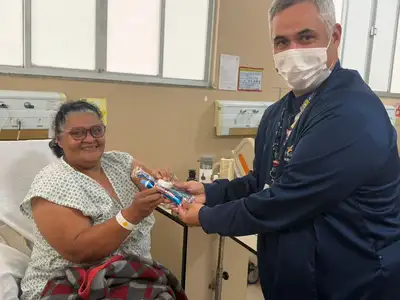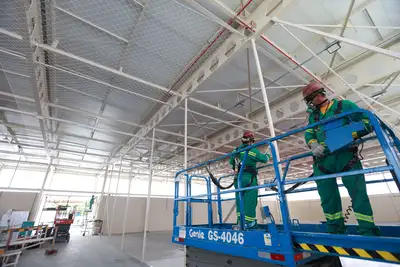Santa Casa warns about the care needed for high blood pressure during pregnancy
The hospital is a reference for high-risk pregnant women
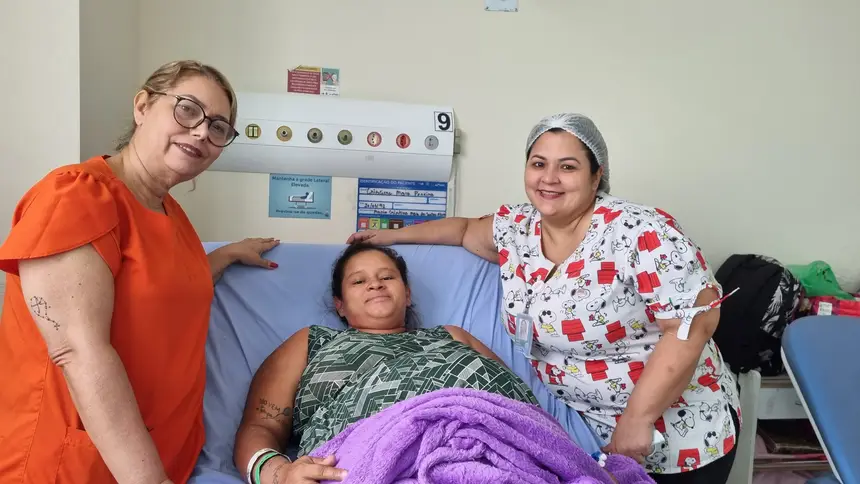
Crisciane Pereira is in the 34th week of her second pregnancy and, just like in her first pregnancy, she is once again facing gestational hypertension. Originally from the municipality of Chaves, she has been hospitalized for about a week at Santa Casa do Pará, where she receives continuous medical care.
"I have diabetes and had high blood pressure during my first child's pregnancy. Now I am going through this again. At Santa Casa, I am being well taken care of, and with the medications and diet, my blood pressure is under control. For me, the hardest part is the food, but I know I need to take care of my health," reports Crisciane, who acknowledges her excessive consumption of salt and sugar and the importance of changing her eating habits to ensure a safe pregnancy.
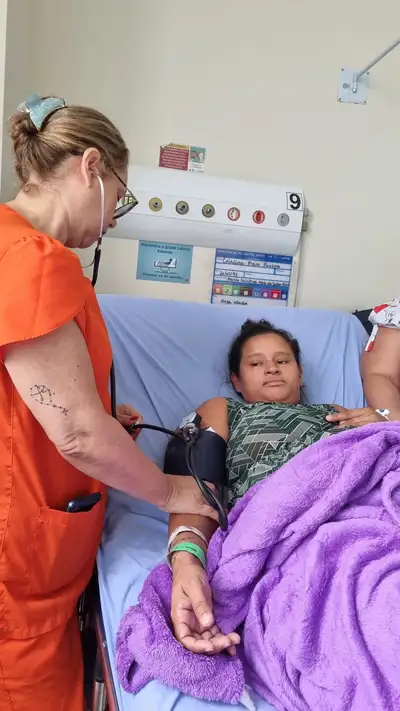
At Santa Casa do Pará, pregnant women like Crisciane receive specialized, individualized, and multiprofessional care in the hospital's maternal-infant unit, which is a reference in caring for high-risk pregnant women throughout the state.
In addition to the Emergency Unit, which receives pregnant women on an open-door basis, the hospital has two high-risk wards with 46 beds designated for the hospitalization of patients with conditions that may worsen during pregnancy, such as hypertensive syndromes, diabetes, and urinary infections.
Obstetric nurses Augusta Barreto and Rita Moraes are part of the multiprofessional team responsible for the daily monitoring of these patients. They explain how the assistance provided in the unit works.
"We have a complete team: nutritionist, pharmacist, nurses, doctors, and nursing technicians, who monitor the patient from admission to discharge or delivery. We constantly monitor vital signs and, in case of changes, we reassess the conduct with the doctor to intervene when necessary," explains Augusta. She emphasizes that during hospitalization, the vitality of the baby is also assessed to prevent risks to maternal-fetal health.
Doctor Carla Haber, a gynecologist and obstetrician with extensive experience in monitoring high-risk pregnant women, highlights the different forms of Gestational Hypertensive Syndromes, such as the one faced by Crisciane. According to her, these conditions can manifest in four ways:
- Chronic Arterial Hypertension: occurs before the 20th week of pregnancy;
- Preeclampsia: occurs after the 20th week and is accompanied by proteinuria and/or organ damage such as liver and kidneys;
- Gestational Hypertension: also after the 20th week, but without proteinuria or target organ damage;
- Overlapping Chronic Hypertension: when the patient already has hypertension before pregnancy and develops proteinuria after the 20th week.
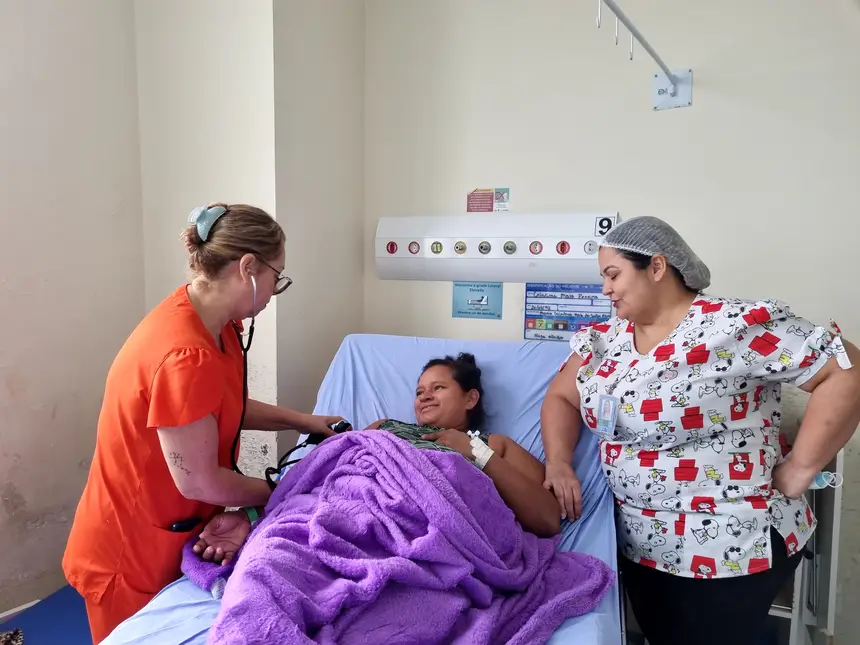
The doctor warns about the risks of high blood pressure during pregnancy. "If not well controlled, it can bring serious complications for the mother and the baby, such as eclampsia (seizures), stroke, blindness, premature birth, fetal growth restriction, and in severe cases, even maternal or fetal death," she states.
Hypertension during pregnancy can be asymptomatic or present signs such as headache, swelling in the hands and face, visual changes (blurred vision or sparkling spots), pain in the upper abdomen, nausea, and vomiting. Therefore, the doctor emphasizes the importance of prenatal care.
"Early diagnosis is essential to avoid complications and ensure better outcomes for mother and baby. Quality prenatal care allows for the identification of risk factors, monitoring of blood pressure, and the adoption of appropriate preventive measures," she concludes.



